BAMnut! WhatIF! Have you heard…they’re a THING!!! And just might be the hottest THING launching in the U.S. food market! Here are the deets and why you want to buy and consume them.
As a registered dietitian, it’s rare to find a food company that is committed from start to the finished product to be the “Better Better” with each step in the process, but that’s just what WhatIF Foods has done!
Where Do Bambara Nuts Come From and How They Benefit the Planet?
The Founder and CEO of WhatIF Foods, Chris Langwallner, has a background in food manufacturing and decided to take his thirty plus years’ experience to not only create nutritious foods such as ramen noodle substitutes, but also to create foods that are healing the land in which they’re grown and are a source of provision for farmers in countries that lack opportunities to earn a living and provide for their families. You couldn’t possibly ask for anything BETTER!!!
A little history on the amazing Supernut itself starts in the West African country of Ghana where the Bambara Groundnut is grown.
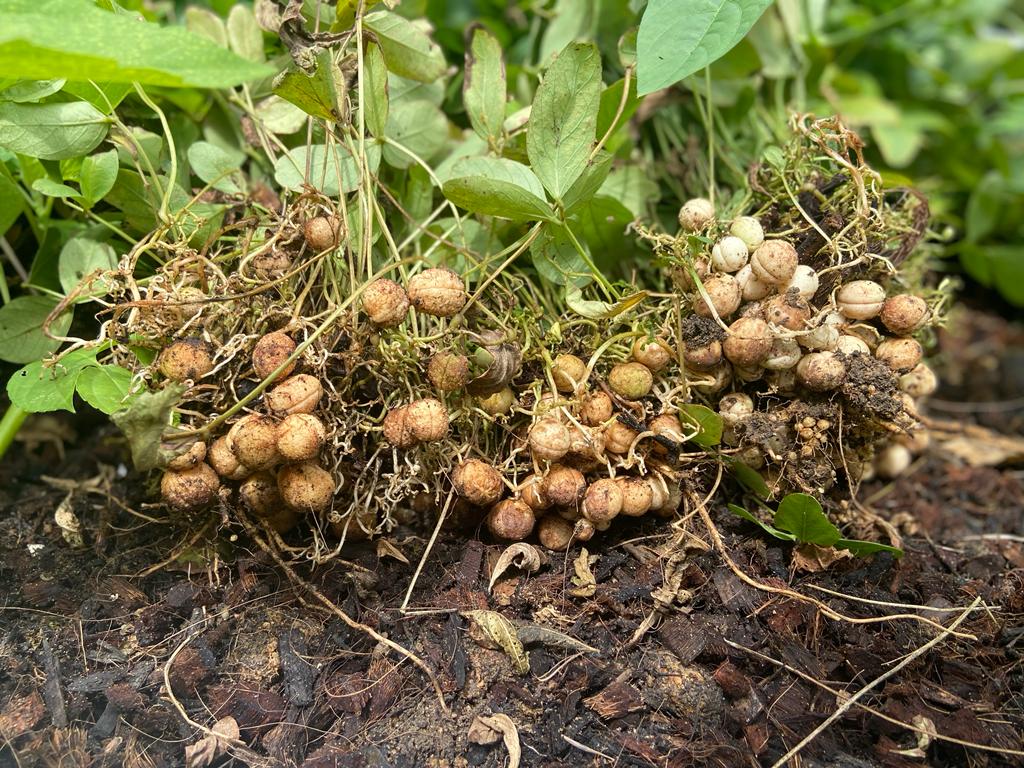
It’s named after the Bambara Tribe but has lovingly been nicknamed the BAMnut! It grows in very hot, dry arid desert conditions with very long roots that draw nitrogen into the ground to increase organic compounds, resulting in more nutrient-rich soil that revives and heals the land that will support the growth of many other crops. The BAMnut selflessly doesn’t need much water to grow. In fact, it contributes to the conservation of precious water resources, as it only needs about 25% of the water that tree nuts require, and it thrives in water-deprived land where other tree nuts such as almond will not survive.
And one of my favorite things about the process of growing these Supernuts is that the majority of the farmers in Ghana are women who are providing for their families!! WhatIF Foods is truly committed to making the planet and the communities a “Better Better.”
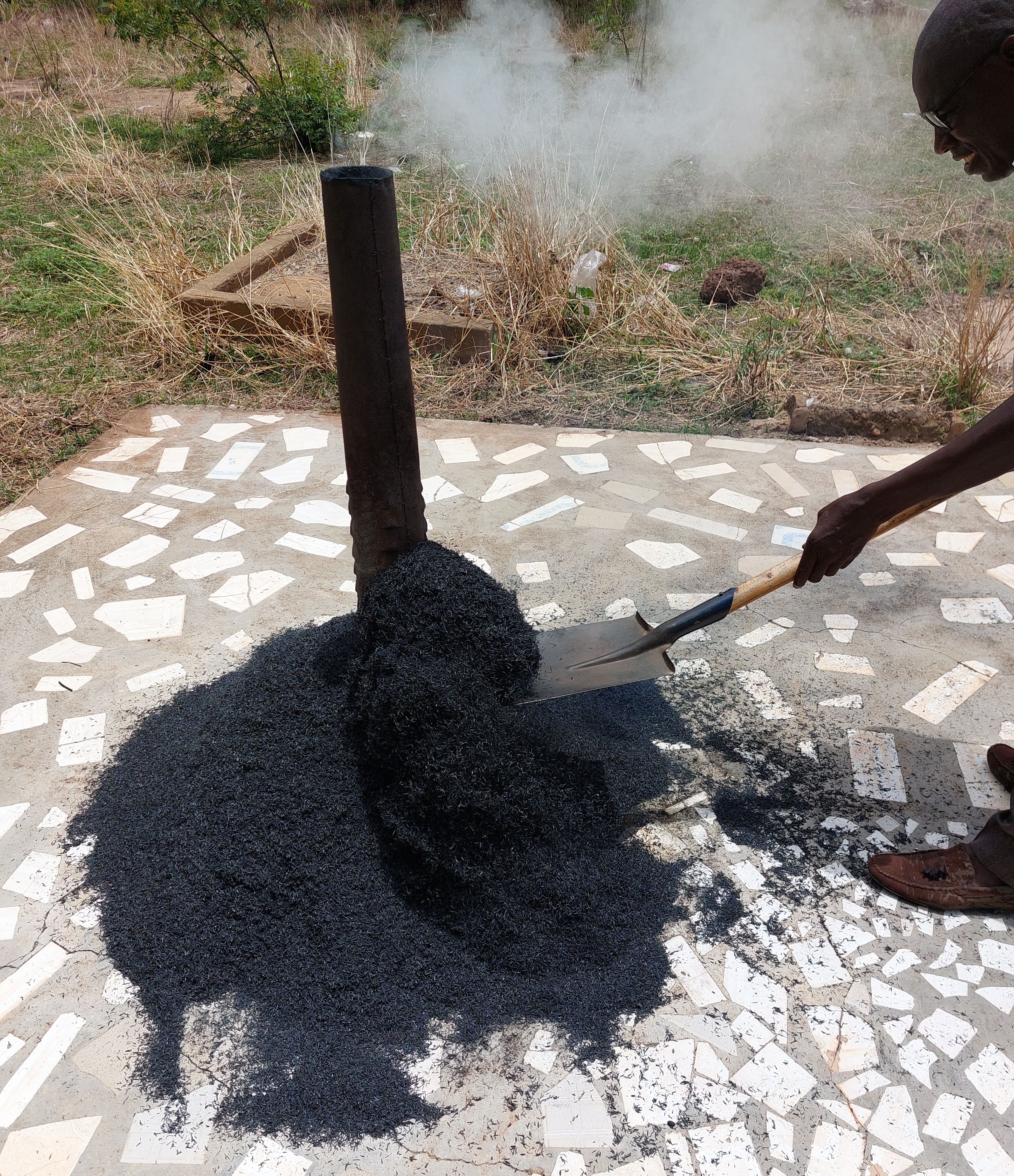
Also, nothing goes to waste with the Bambara nuts…even the hard shell that is removed from the nut at harvest is converted through a process known as pyrolysis into Biochar, which acts as a natural fertilizer for the soil, instead of using harsh chemicals. The other amazing thing with Biochar is that this process actively enables the removal and sequestration of carbon from the atmosphere.
The All-Star Lineup of BAMNUTS Benefits
Speaking of nutrition…the nutritional profile of the Bambara nuts is a total show-stopper!
BAMNUT is nutrient-dense and naturally contains fiber and some of that fiber is resistant starch, which helps to regulate blood glucose for those who are pre-diabetic and diabetic, is a source of pre-biotics that is a food for the body to make probiotics, ultimately improving gut function, the immune system and reduces inflammation! Bambara nuts contain protein with a high profile of essential amino acids and no cholesterol. The BAMnut also naturally contains calcium, iron, potassium, phosphorus and magnesium. All the BAMnut milks naturally contain iron without fortification and are a high source of iron providing 33% of the FDA recommended Daily Value per serving.
The Ever Amazing Delicious Versatility of Bambara Nuts
Now, for the tasty part of these Supernuts…Bambara nuts are versatile and can easily be incorporated into most diets!
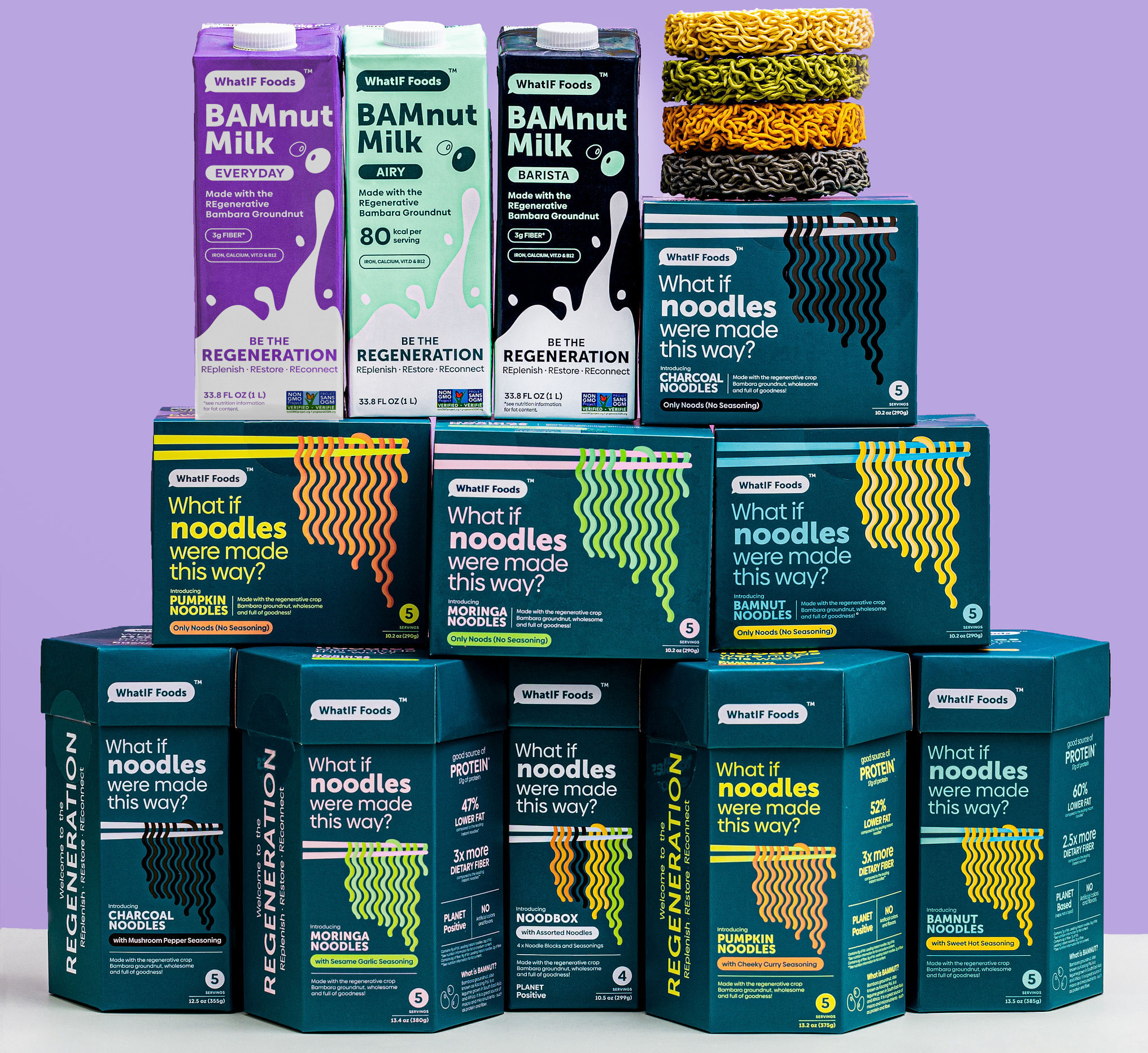
WhatIF Foods has taken this little unknown groundnut and makes plant-based milk and noodles from it!
Their milks easily replace other nut-milks and not only taste amazing, but are fabulous replacements for cooking, baking, and for drinks such as coffee, tea and mixed cocktails!
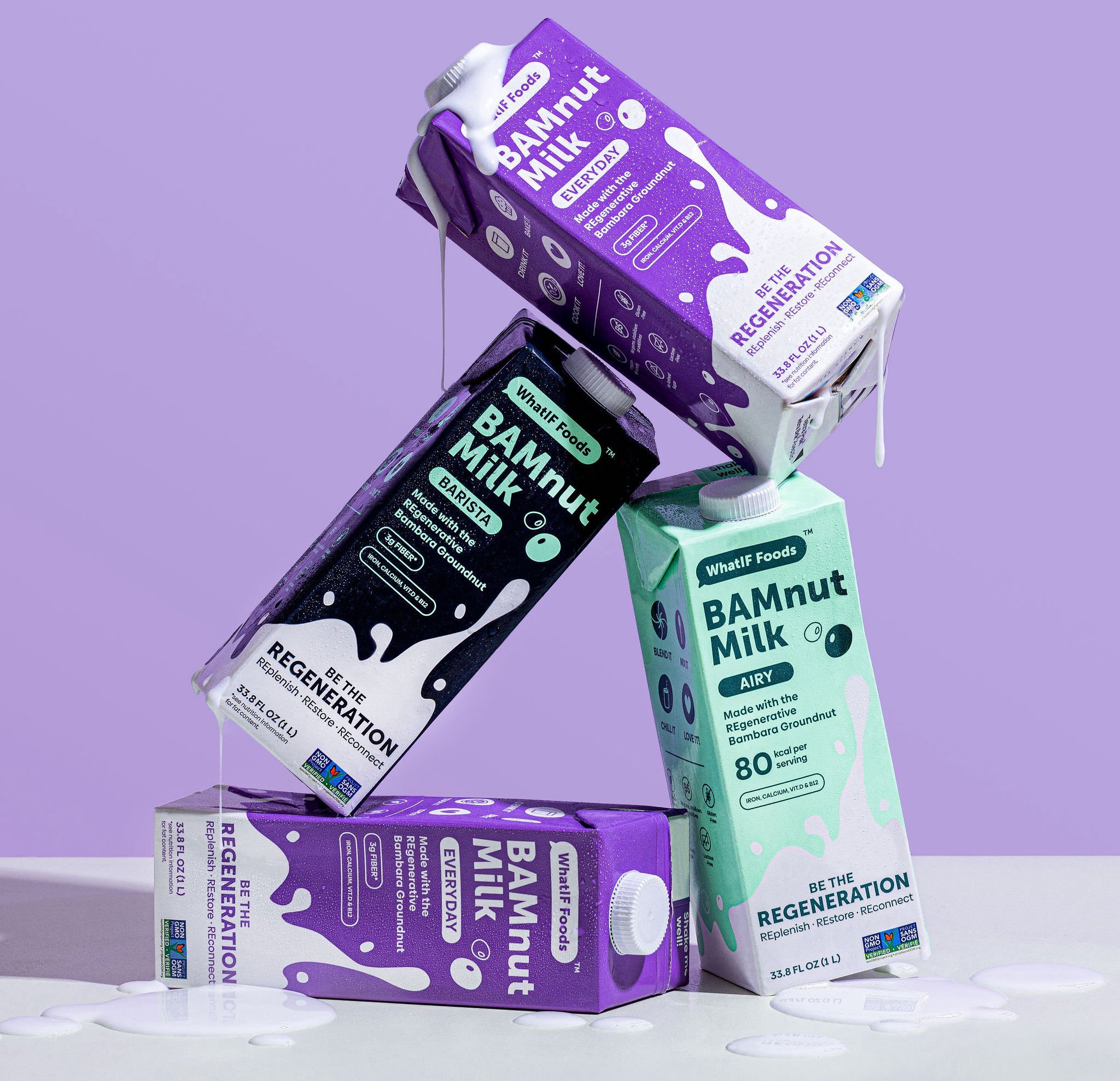
There are three varieties, including the Airy which calorically compares to skim milk, there’s the Original Milk that is calorically equivalent to 2% milk and the Barista Milk version is calorically similar to whole milk. Shh…I’ll even let you in on a little secret…Coffee shops around the globe love BAMNUT milks because all varieties froth better than other plant-based milks!!
BAMNUT noodles are not fried in oil, therefore contain up to 60% less fat and up to 3x as much fiber than traditional ramen noodles, and makes a great ramen noodle substitute.
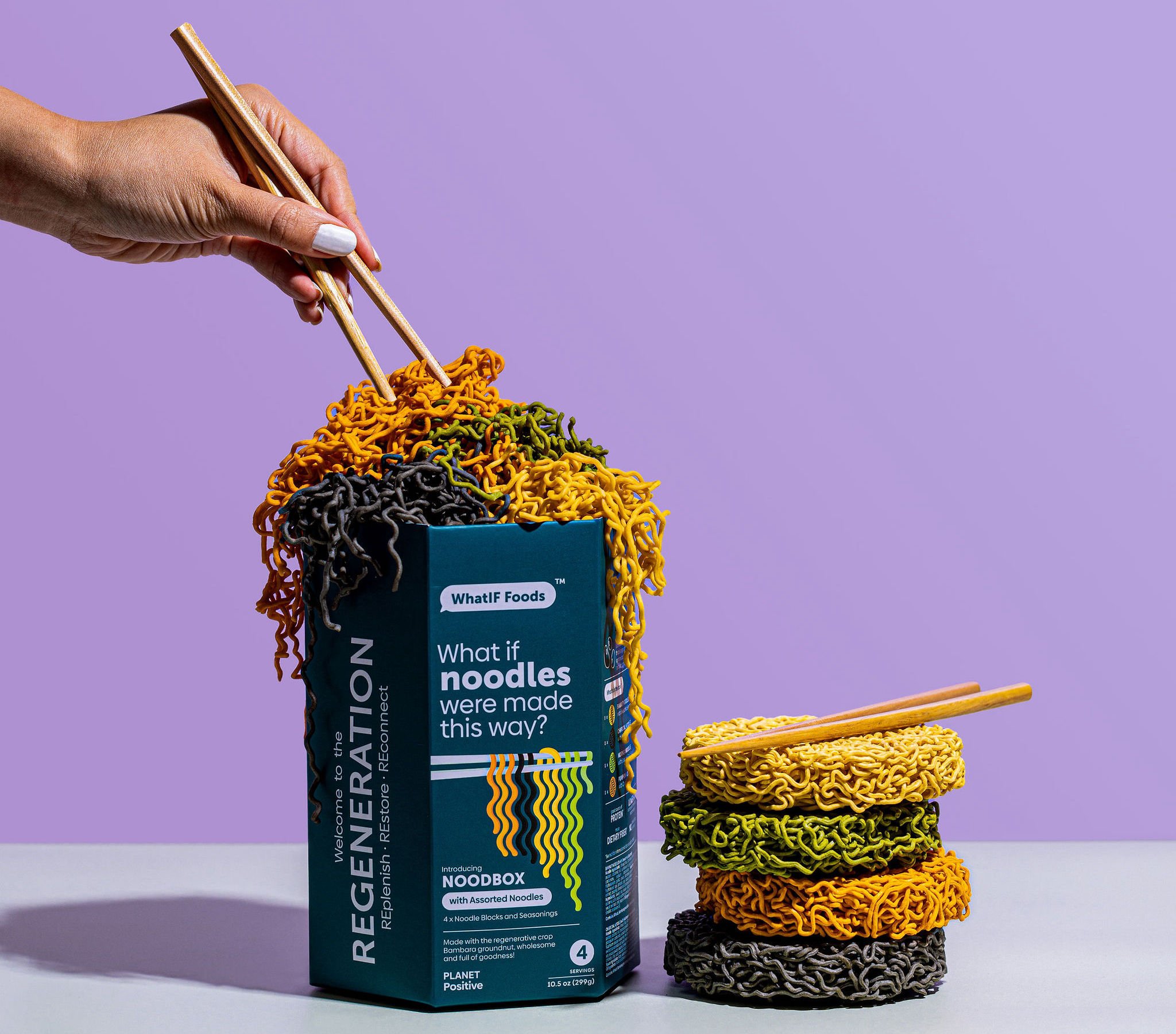
The BAMNUT noodles are also rich in protein, containing 17g of protein per serving - that’s equivalent to the protein of 2 eggs! The noodles can be utilized for vegans who want plant-based protein, and they can also be incorporated into traditional diets as well! They also make a fantastic replacement as a ramen noodle substitute!
Whats Next?? Go try BAMNUT milks, creamers and noodles for yourself and your family!
Taste the delicious difference while contributing to a better planet, reconnecting to farmers and feel good about leaving a healthier planet for the next generations!!!

Melissa Hooper (MS, RDN), Registered Dietitian & Nutritionist
Disclaimer: This is not medical advice.
What's next?
Read all about the mighty BAMnut and its journey to your kitchen here.
Discover how biochar plays an important role in reducing our carbon footprint here.
Find out how we create a Better Better with our partner farming communities here.

.png?v=1686818095141&options=)


